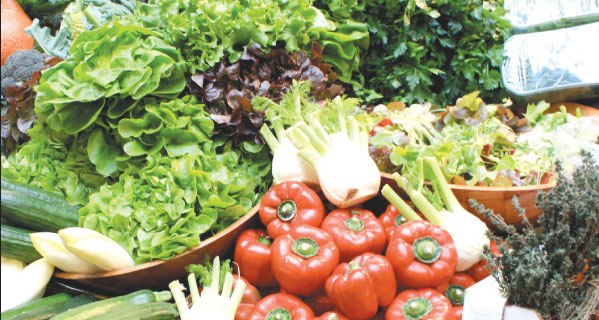The horticulture sector is ranked as the fastest growing sector in the agriculture industry in Kenya; however, produce from Kenya has faced rejection at the entry point of key export markets with Kenya being placed under radar by the European Union as one of the countries with 10 per cent maximum residue levels.
Last year for instance, Kenya’s fresh produce (fruits, vegetables and flowers) to the European Union was rejected 29 times due to infestation by pests and produce having exceeded minimum pesticide limits.
According to the Kenya Agricultural and Livestock Research Organization, the most common pests are the bollworm, armyworm, leaf miner, white fly, bean thrip and the false coding moth.
In this, farmers can avoid rejection of their horticultural produce such as flowers, snap peas, French beans, mango and avocado by identifying pests that affect these crops and adhering to export requirements set by the Kenya Plant Health Inspectorate Service.
KALRO reports that bollworm accounts for 33 per cent of the total rejection cases. The pest affects roses, mango, French beans and snow peas. When it attacks a plant, it feeds on pollen and anthers thereby reducing their quality due to rotting. The pest can be controlled by crop rotation through plant diversification by growing other crops such as beans that not favorable to the pest.
Related content
Fresh Produce exporter contracting farmers to supply Hass and Fuerte avocado varieties
Kenya livestock sector earns big exporting live animals to Middle East

The leaf miner causes 27 per cent rejection rate and affects flowers, French bean pods and snow pea pods. It is identified by presence of yellow lines, spots or blotches on leaves caused by the larvae. A natural way instead of use of chemicals in controlling leaf miners is by use of neem oil which affects the life cycle of the pest by killing the larva hence reducing their population.
Armyworm accounts for less than five per cent of the total rejection cases in flowers. Natural ways farmers can reduce the impact include squashing the eggs or caterpillars when they see them.
Bean thrips affect mango, banana, French beans, snow peas, flowers and avocados. Thrips such juices in plants turning them pale and discolored. They are controlled by uprooting and discarding of infected plants. Also remove weeds and grass to eliminate alternative hosts.
When exporting cartons of fruits or vegetables, the exporter must mention the name and address of the packer and dispatchers, the country of origin, the name of the produce, the class and size and lot number for traceability.
Foods to the EU are also subjected to official controls. This includes documentary checks, identity checks, and physical checks.
For starters there are five documents exporters of any produce must to have. These include an export license from the Horticultural Crops Development Authority, HCDA. The document is issued after the exporter presents to the authority documents like certificate of business registration, KRA Pin, name of the bank, photocopy of the identity card, documentary evidence from the overseas clients, for example a letter, fax or e-mail that the exporter is ready to start an export business, produce packing facilities inspection report, farm inspection report, buyer – produce contracts as witnessed by HCDA, company stamp and authorized signatory of applicant, typed application form and a registration fee of Sh5,000 yearly.
Another document is the Phytosanitary and conformity certificates from KEPHIS that is done to ensure that all exported plant and plant products are in conformity with the requirement of the importing country. The Euro 1 certificate issued for those exporting to EU Markets are certificates which demonstrate that goods are of preferential origin.
GlobalGAP certification, another key certificate is a document that shows that exporting farmer has engaged in Good Agricultural Practices that ensures that crops have been grown in safe, healthy and responsible way.
Maximum Residue Limit (MRL) compliance certificate for those exporting to EU markets ensures that farmers are abiding to the right pesticides and herbicides application when they are growing their produce.
For UK supermarkets, exporters require BRC certification which guarantees the standardisation of quality, safety and operational criteria and ensure that manufacturers fulfil their legal obligations and provide protection for the end consumer.
Private standards in EU, non-EU and other countries like USA, Japan, and Middle East keep on changing with time, and therefore, individual markets may have additional private standard requirements.
Most EU buyers (for example traders, food processors, retailers) require the implementation of a food safety management system based on Hazard Analysis and Critical Control Point (HACCP).
The most commonly requested food safety certification scheme, essential for exporting fresh produce to Europe, is GLOBALG.A.P. This is a pre-farm-gate standard that covers the whole agricultural production process, from before the plant is in the ground to the non-processed product (processing not covered). GLOBALG.A.P. has become a minimum standard for most European supermarkets.
For more details farmers can contact:
KEPHIS on: 0709 891 000 or
HCDA on: +254 (20) 213 1560.
















Comments powered by CComment